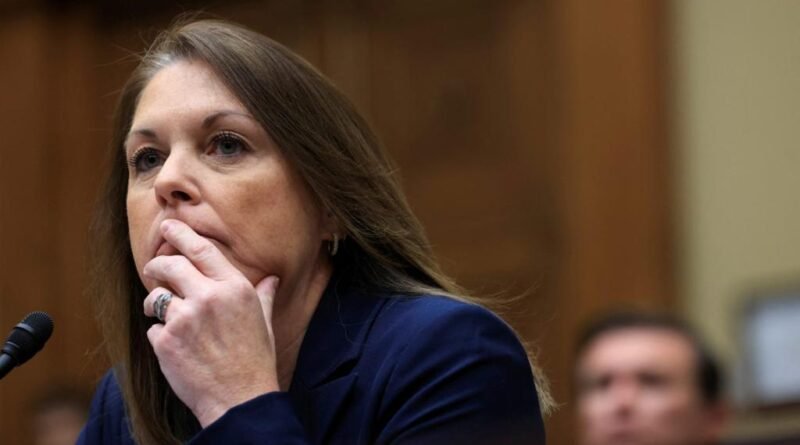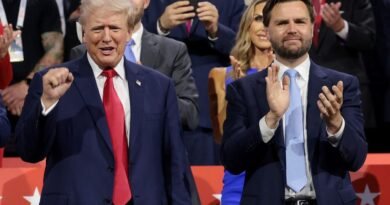As private sector moves away from DEI, government must remain committed
Is DEI DIE-ing?
We can hope. And with the sudden resignation Tuesday of disgraced former US Secret Service Director Kimberly Cheatle, it’s starting to look like it.
Like most leftist catchphrases, “DEI” — which stands for Diversity, Equity and Inclusion — is basically a lie.

“Diversity” is code for specified hiring and promotion quotas based on race, gender, sexuality and similar factors. In practice, it boils down to discrimination.
“Equity” sounds like “equality,” an idea Americans like, but it actually means the exact opposite.
Under “equity,” we don’t treat people equally but very explicitly treat them unequally in the name of “fair” outcomes — a term that means whatever the powers-that-be want it to mean at the moment.
As for “inclusion,” well, when was the last time you saw a “DEI advocate” demand the inclusion of Republicans, conservatives, Christians or white males?
They want to include everyone — except the people they don’t like.
For a while we were told that DEI was good for business, and good for encouraging people to get along.
But in fact there’s no evidence that corporate DEI efforts help the bottom line: The chief support for that notion was a McKinsey study that was, well, questionable.
Moreover, there’s considerable evidence on college campuses that DEI efforts increase racial division and prejudice, rather than reducing it.
Shockingly, calling attention to people’s differences, and handing out goodies based on those differences, doesn’t promote fellow-feeling.
Businesses and colleges are catching on: Microsoft recently laid off its DEI team, becoming the latest company to ditch woke policies.
Other tech companies like Google and Meta are also slashing their DEI programs, along with Zoom, Snap, Tesla, DoorDash, Lyft, Home Depot and Wayfair.
Retailer Tractor Supply, facing backlash from customers, has done the same, as has John Deere.
Similarly, as the Chronicle of Higher Education reports, colleges around the nation are dismantling their DEI programs, and a major human resources trade group, the Society for Human Resources Management, is dropping the “Equity” concept from its DEI efforts.
Lately, in a counter-catchphrase that’s gotten some traction, DEI has come to stand for “Didn’t Earn It” to critics who note that those who run things are sticking unqualified people in various slots purely because of their observable characteristics.
Which brings us to the Secret Service, and its rather pathetic performance during the assassination attempt on former president Donald Trump.
Cheatle, the agency’s now-former director, loudly bragged about her DEI efforts, producing action-video ads featuring women on the force.
But the promotional videos compared poorly with actual footage of chunky, out-of-shape-looking female agents struggling with their holsters and sunglasses in the aftermath of the shooting.
Australia’s Sky News called them “fumbling fumbelinas” in a humiliating commentary segment.
Were these unimpressive agents given their jobs because of DEI?
Given Cheatle’s diversification push, it’s a fair question.
And even the best agents can’t adequately protect a tall man if they’re short.
“You need to be taller than the candidate to protect them with your body,” Meghan McCain tweeted. “Why do they have these short women (one who can’t holster a gun apparently) guarding Trump?”
Well, one reason is to make it obvious that they’re hiring agents who depart from the traditional Clint Eastwood / Kevin Costner model of a tall, athletic Secret Service agent. See – they’re right there on national TV!
The benefits of “visible diversity” break down, though, when they’re on national TV failing to holster their guns.
At Monday’s congressional oversight hearing, both Republicans and Democrats were contemptuous of Cheatle’s performance and priorities.
Rep. Tim Burchett (R-Tenn.) called her a “DEI horror story.” Rep. Ro Khanna (D-Calif.) demanded her resignation, just as former director Stuart Knight quit after President Ronald Reagan was shot. And now Cheatle has done so.
When you focus on appearances, it turns out, you fail at substance.
You want to boost the visibility of top people from all walks of life? Hire top people from all walks of life, without worrying about quotas, “equity” and other weaselly ways of judging people on factors other than pure ability.
Most people who run our companies and institutions seem to have enough trouble doing their actual jobs — making functional software (I’m looking at you, CrowdStrike), preventing assassination attempts on presidential candidates, whatever.
Too many of our institutions, public and private, have been hijacked by trendy causes that have nothing to do with their actual missions.
If, as seems likely, some of them are retreating from an over-the-top commitment to DEI, that can only bode well.
Faster, please.
Glenn Harlan Reynolds is a professor of law at the University of Tennessee and founder of the InstaPundit.com blog.



